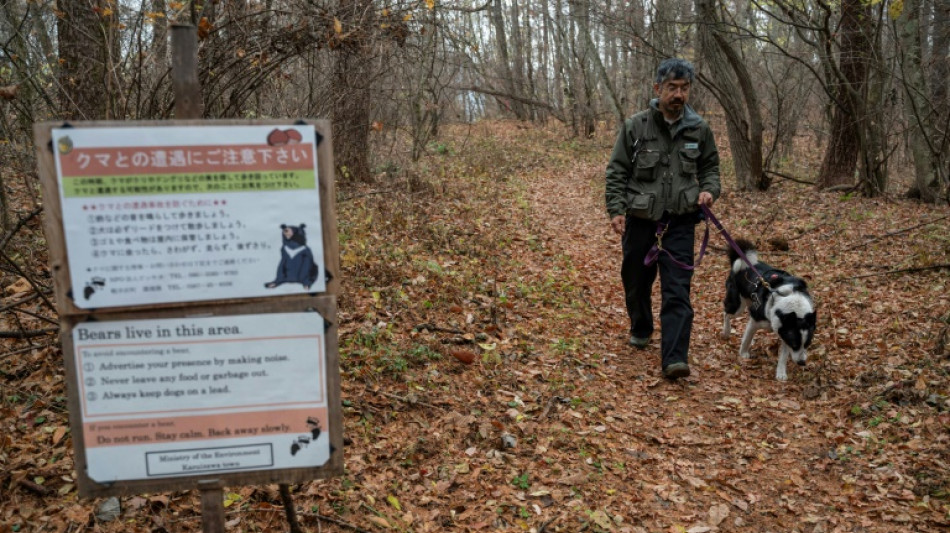
-
 USA defeat Canada for Olympic men's ice hockey gold, Trump celebrates
USA defeat Canada for Olympic men's ice hockey gold, Trump celebrates
-
EU 'expects' US to honour trade deal as Trump hikes tariffs

-
 'GOAT' battles to top of N. America box office
'GOAT' battles to top of N. America box office
-
South Africa thrash India to end 12-match T20 World Cup win streak

-
 Bielle-Biarrey breaks record as France beat Italy in Six Nations
Bielle-Biarrey breaks record as France beat Italy in Six Nations
-
US says trade deals in force despite court ruling on tariffs

-
 Barcelona back top of La Liga with Levante win
Barcelona back top of La Liga with Levante win
-
Gu strikes gold, USA beat Canada in men's ice hockey

-
 What's behind England's Six Nations slump?
What's behind England's Six Nations slump?
-
Napoli rage at officials after loss at Atalanta

-
 Liverpool late show floors Nottingham Forest
Liverpool late show floors Nottingham Forest
-
Rimac Nevera R: Beyond imagination

-
 USA beat Canada to win men's Olympic ice hockey gold
USA beat Canada to win men's Olympic ice hockey gold
-
Samardzic seals comeback win for Atalanta over Napoli

-
 Eileen Gu switches slopes for catwalk after Olympic flourish
Eileen Gu switches slopes for catwalk after Olympic flourish
-
Luce: Ferrari's ingenious electric revolution

-
 Miller guides South Africa to 187-7 against India
Miller guides South Africa to 187-7 against India
-
Scotland boss 'proud' of comeback Six Nations win over Wales

-
 Iranian students rally for second day as fears of war with US mount
Iranian students rally for second day as fears of war with US mount
-
US Secret Service kills man trying to access Trump Florida estate

-
 Coventry 'let the Games do their magic': former IOC executives
Coventry 'let the Games do their magic': former IOC executives
-
Cayenne Turbo Electric 2026

-
 Sri Lanka have to qualify 'the hard way' after England drubbing
Sri Lanka have to qualify 'the hard way' after England drubbing
-
Doris says Six Nations rout of England is sparking Irish 'belief'

-
 Thousands of pilgrims visit remains of St Francis
Thousands of pilgrims visit remains of St Francis
-
Emotional Gu makes history with Olympic freeski halfpipe gold

-
 Impressive Del Toro takes statement victory in UAE
Impressive Del Toro takes statement victory in UAE
-
Gu wins triumphant gold of Milan-Cortina Olympics before ice hockey finale

-
 England rout Sri Lanka for 95 to win Super Eights opener
England rout Sri Lanka for 95 to win Super Eights opener
-
Underhill tells struggling England to maintain Six Nations 'trust' as Italy await

-
 Alfa Tonale 2026: With a new look
Alfa Tonale 2026: With a new look
-
BMW 7 Series and i7: facelift in 2026

-
 Eileen Gu makes history with Olympic freeski halfpipe gold
Eileen Gu makes history with Olympic freeski halfpipe gold
-
Eileen Gu makes history with Olympic halfpipe gold

-
 Morocco flood evacuees mark muted Ramadan away from home
Morocco flood evacuees mark muted Ramadan away from home
-
Lucid Gravity 2026: Test report

-
 Sri Lanka restrict England to 146-9 in T20 World Cup Super Eights
Sri Lanka restrict England to 146-9 in T20 World Cup Super Eights
-
West Indies wary of Zimbabwe's 'X-factor' quick Muzarabani

-
 Bentley: Visions for 2026
Bentley: Visions for 2026
-
Eileen Gu wins Olympic gold in women's freeski halfpipe

-
 First 'dispersed' Winter Olympics a success -- and snow helped
First 'dispersed' Winter Olympics a success -- and snow helped
-
Six stand-out moments from the 2026 Winter Olympics

-
 Andrew's arrest hands King Charles fresh royal crisis
Andrew's arrest hands King Charles fresh royal crisis
-
Afghans mourn villagers killed in Pakistani strikes

-
 Jeeno Thitikul brings home LPGA win in Thailand
Jeeno Thitikul brings home LPGA win in Thailand
-
Snowboard champion Karl '99 percent' sure parallel giant slalom will stay in Olympics

-
 Greenland does not need US hospital ship: Danish minister
Greenland does not need US hospital ship: Danish minister
-
Russian missile barrage hits energy, railways across Ukraine

-
 Ka Ying Rising makes Hong Kong racing history with 18th win
Ka Ying Rising makes Hong Kong racing history with 18th win
-
St Francis relics go on public show for first time in Italy


Dogs, antennas and honey for Japan's big bear problem
Thousands of bears are being shot in Japan each year as they become more and more of a problem. Junpei Tanaka and his dog Rela, straining at her leash in the woods, have a kinder, smarter way.
People moving from rural areas and Japan's ageing society -- plus climate change affecting bears' food and hibernation time -- are prompting ever more of the hungry animals to approach towns.
Reliable data is hard to find but bear numbers also appear to have rocketed, with one newspaper estimating they had roughly tripled in 11 years in some places. Sightings have almost doubled this year.
The increasing frequency of these powerful animals -- which in the case of brown bears can weigh half a tonne (1,100 pounds) and outrun a human -- coming into contact with people has created alarming headlines.
This year is on track to be the deadliest for humans since the government started collating data in 2006, with six people killed by bears, including one elderly woman in her garden in October.
The severed head of a fisherman was found by a lake in May. A bear was reportedly spotted with his waders dangling from its mouth.
Another 212 people, also a record, have been injured in attacks.
One bear attacked six people in a single day in October, including an 83-year-old woman and a schoolgirl waiting for a bus in the northern town of Kitaakita.
- Animal-lovers -
It's been far worse for the bears.
On average over the past five years, 4,895 have been killed each year, according to figures from the Environment Ministry.
As of November 30, 6,287 have died in this fiscal year (to March), around 2,000 of them in November alone. Usually, they are shot.
"This year, it's expected to go as high as 8,000," said Tanaka, 50, a bear expert who works for the Picchio Wildlife Research Center.
This is prompting unease in a country -- three-quarters of it mountainous -- that thinks of itself as living in harmony with nature.
"For a long time, Japanese people co-existed with wild animals... They believed in the presence of gods in every kind of living thing and avoided unnecessary killing," Tanaka said.
"But now, it has become difficult to segregate the wild and human areas due to the change in environment, change in social structures and change in people's lifestyles," he said.
- Reliable -
Tanaka says his project in Karuizawa, a town surrounded by woods in the shadow of a volcano 90 minutes from Tokyo by bullet train, is a "forerunner" of what can be done without resorting to killing the bears.
In the dead of night -- when the bears are most active -- Tanaka demonstrates the methods used by his organisation, which he says keeps both humans and bears safe.
He and his team set barrel traps, with honey inside, to capture any bears that start to lose their fear of humans. They are fitted with a radio collar and released, far away.
The town has also installed bear-proof rubbish collection points -- the slot for the door handle is too small for a paw -- and appealed to locals to be more aware.
But the key component in the non-lethal efforts is Tanaka's amber-eyed, keen-nosed canine Rela and the rest of the team of specially trained Karelian Bear Dogs, a sturdy and fearless breed originally from Finland.
"They are very reliable staff of the team. They are our colleagues," Tanaka tells AFP.
Picchio acquired Rela's mother from the Wind River Bear Institute in the United States, whose bear biologist founder Carrie Hunt has pioneered the use of dogs in bear control.
Heading out in his small van in the pre-dawn mist, Tanaka first waggles around a metre-long (three-foot) antenna to triangulate the location of any nearby bears fitted with a radio collar.
"You got the bear scent? Okay, let's go!" Tanaka says in English -- like all his commands -- to the dog.
He and Rela then head fearlessly out over the hill and once they find a bear -- unseen by AFP staying safely at a distance -- the dog emits a fierce bark and scares it away.
- 'Bear shepherding' -
This "bear shepherding" method is unique in Japan, although other places are interested, said city official Masashi Tsuchiya.
"Bears are dangerous animals, so it is true that we did receive some voices from local residents that bears should be killed," Tsuchiya told AFP.
"But thanks to the Picchio programme, we have learned that we can control and monitor bears' behavioural patterns by identifying each individual animal, attaching a radio collar and pushing them away from the town," he said.
Japan has two types of bears. Around Karuizawa they are all Asian black bears -- also known as moon bears -- and the bigger brown bears live on the northern island of Hokkaido.
Moon bears always live in forests and don't like being seen but brown bears, which are bigger, come out in the open. And while brown bears "bluff" attacks, moon bears do not.
"Most of the time they run away from humans. But once they get in trouble with a human and get into a panic, they attack," Tanaka said.
"And they don't retreat."
A.Jones--AMWN



